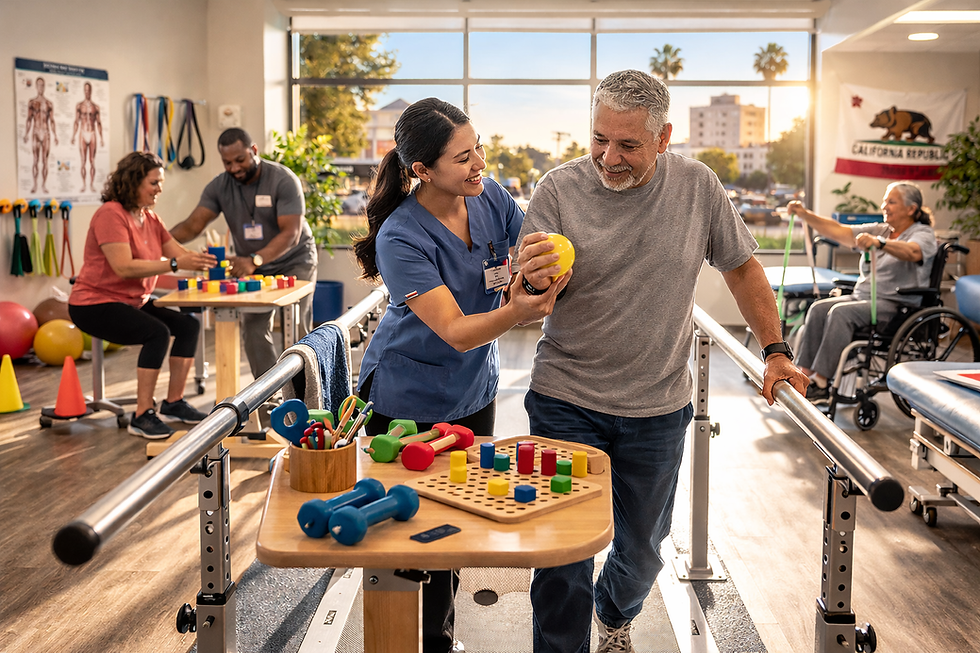Tailored Solutions for Unique Community Needs
- Aug 5, 2025
- 4 min read
Updated: Sep 15, 2025
Every person’s story is different, and so are their struggles. When systems fail, it is not because people are broken but because the support offered is one-size-fits-all. The truth is harsh: many institutions are designed without the nuance or flexibility to meet the complex realities of those they serve. But there is hope. Tailored solutions that recognize the whole person - their history, their challenges, and their strengths - can transform lives. This is not charity. It is justice. It is empowerment. It is the foundation for lasting change.
Why Tailored Solutions Matter
Systems often treat symptoms, not causes. They apply generic fixes to deeply personal problems. Imagine a person living with mental health challenges, compounded by homelessness and lack of access to medical care. A standard program might offer shelter or medication, but without addressing the root causes or the intersecting barriers, the cycle continues. Tailored solutions dig deeper.
They start by listening. They recognize that no two journeys are the same. For example, a veteran struggling with substance dependence may need a different approach than an elderly immigrant facing language barriers and isolation. Tailored solutions create pathways that honor these differences.
Key elements of tailored solutions include:
Holistic assessment: Understanding physical, mental, social, and economic factors.
Flexible programming: Adapting services to individual needs rather than forcing people into rigid categories.
Cultural competence: Respecting and incorporating cultural, racial, and ethnic identities.
Empowerment focus: Supporting clients as agents of their own transformation, not passive recipients.
This approach is not easy. It requires resources, training, and a commitment to radical honesty about what works and what doesn’t. But the payoff is real: people regain dignity, stability, and hope.

Implementing Tailored Solutions in Practice
How do organizations translate this philosophy into action? It starts with building trust. Many adults facing homelessness or mental health challenges have been failed repeatedly by systems that promised help but delivered judgment or neglect. Trust is earned through consistent, compassionate engagement.
Next, services must be integrated and accessible. For example, Help Is Hope Modesto offers a range of support including mental health counseling, medical referrals, and housing assistance all under one roof. This reduces the burden on clients who might otherwise navigate multiple agencies with conflicting requirements.
Technology can also play a role. Online booking for support sessions, like the Wix booking system, makes it easier for people to access help on their own terms. This respects their autonomy and reduces barriers like transportation or scheduling conflicts.
Examples of tailored interventions include:
Personalized care plans that address specific health conditions alongside social needs.
Peer support groups that connect people with shared experiences, fostering community and reducing isolation.
Culturally relevant programming that honors traditions and languages.
Employment and skills training designed for those with learning difficulties or neurodivergence.
These solutions require ongoing evaluation and adaptation. What works for one person today may need adjustment tomorrow. The goal is to create a living system that evolves with the community it serves.

The Role of Personalized Support Services
At the heart of tailored solutions are personalized support services. These services are not about ticking boxes or meeting quotas. They are about meeting people where they are - physically, emotionally, and socially.
Personalized support means:
Listening deeply to understand unique challenges.
Collaborating on goals that matter to the individual.
Providing resources that fit their life context.
Advocating for systemic changes that remove barriers.
For example, an adult with disabilities who lacks dental care might receive referrals to low-cost clinics, transportation assistance, and follow-up support to ensure appointments are kept. This kind of wraparound care acknowledges that health is interconnected with housing, income, and social support.
By investing in personalized support, organizations empower people to reclaim control over their lives. This is not about dependency but about building resilience and self-sufficiency.

Overcoming Barriers with Radical Honesty
The systems designed to help often feel cold and impersonal. They can be confusing, slow, and judgmental. Radical honesty means calling out these failures without sugarcoating. It means acknowledging that poverty, mental illness, and homelessness are not personal failings but consequences of broken systems.
This honesty is fierce compassion. It validates lived experience and refuses to blame individuals for circumstances beyond their control. It also challenges injustice by demanding better policies and more equitable resource distribution.
For those seeking help, this approach offers clarity. It says: "We see you. We know the system has failed you. But we are here to walk with you toward something better."
Practical steps to embody radical honesty include:
Transparent communication about what services can and cannot provide.
Clear explanations of rights and options.
Encouraging clients to voice their needs and concerns.
Advocating for systemic reforms alongside direct support.
This creates a foundation of trust and respect, essential for meaningful transformation.
Moving Forward with Dignity and Hope
Change is possible. Tailored solutions are not a luxury but a necessity for those navigating multiple, intersecting challenges. By embracing personalized, compassionate, and honest approaches, organizations can foster real hope.
If you or someone you know is ready to take the next step, consider reaching out for support. Booking a session online is simple and confidential. Every journey begins with a single step, and no one should walk it alone.
Together, we can build a community where every adult facing hardship is seen, valued, and empowered to thrive.
Take action today:
Explore available services and resources.
Book a support session online at Help Is Hope.
Support tailored solutions by donating to personalized support services.
Hope is not a distant dream. It is a choice we make every day - for ourselves and for each other.



Comments